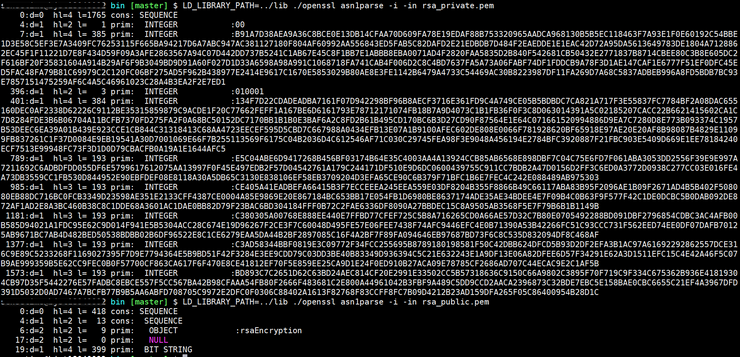
The CSR is created using the PEM format and contains the public key portion of the private key as well as information about you (or your company). In this guide, we will not be using a passphrase in our examples.Īfter generating your private key, you are ready to create your CSR. Because there are pros and cons with both options, it's important you understand the implications of using or not using a passphrase. If used, the private key will be encrypted using the specified encryption method, and it will be impossible to use without the passphrase. Passphraseįor the passphrase, you need to decide whether you want to use one. Any key size lower than 2048 is considered unsecure and should never be used. Note: In older versions of OpenSSL, if no key size is specified, the default key size of 512 is used. Unless you need to use a larger key size, we recommend sticking with 2048 with RSA and 256 with ECDSA. Key Sizeįor the key size, you need to select a bit length of at least 2048 when using RSA and 256 when using ECDSA these are the smallest key sizes allowed for SSL certificates. Note: This guide only covers generating keys using the RSA algorithm. However, if you have a specific need to use another algorithm (such as ECDSA), you can use that too, but be aware of the compatibility issues you might run into. For this reason, we recommend you use RSA.

Key Algorithmįor the key algorithm, you need to take into account its compatibility. When generating a key, you have to decide three things: the key algorithm, the key size, and whether to use a passphrase. Strong -Wformat -Werror=format-security -Wdate-time -D_FORTIFY_SOURCE=2 -Wl,-īsymbolic-functions -Wl,-z,relro -Wa,-noexecstack -Wall -DMD32_REG_T=int -ĭOPENSSL_IA32_SSE2 -DOPENSSL_BN_ASM_MONT -DOPENSSL_BN_ASM_MONT5 -ĭOPENSSL_BN_ASM_GF2m -DSHA1_ASM -DSHA256_ASM -DSHA512_ASM -DMD5_ASM -DAES_ASM -ĭVPAES_ASM -DBSAES_ASM -DWHIRLPOOL_ASM -DGHASH_ASM -DECP_NISTZ256_ASM I./include -fPIC -DOPENSSL_PIC -DOPENSSL_THREADS -ĭ_REENTRANT -DDSO_DLFCN -DHAVE_DLFCN_H -m64 -DL_ENDIAN -g -O2 -fstack-protector. Using the openssl version -a command, the following output was generated: OpenSSL 1.0.2g īuilt on: reproducible build, date unspecified The directory where certificates and private keys are stored ( OPENSSLDIR).The options that were built with the library ( options).The version number and version release date ( OpenSSL 1.0.2g ).In this command, the -a switch displays complete version information, including: Use the following command to identify which version of OpenSSL you are running: openssl version -a Knowing which version of OpenSSL you are using is also important when getting help troubleshooting problems you may run into. For example, OpenSSL version 1.0.1 was the first version to support TLS 1.1 and TLS 1.2. Your version of OpenSSL dictates which cryptographic algorithms can be used when generating keys as well as which protocols are supported. Identifying which version of OpenSSL you are using is an important first step when preparing to generate a private key or CSR. If you don't have the time to get into the nitty-gritty of OpenSSL commands and CSR generation, or you want to save some time, check out our OpenSSL CSR Wizard.

Some command examples use a ' \' (backslash) to create a line break to make them easier to understand. Guide Notes: Ubuntu 16.04.3 LTS was the system used to write this guide. If you're looking for a more in-depth and comprehensive look at OpenSSL, we recommend you check out the OpenSSL Cookbook by Ivan Ristić.

This guide is not meant to be comprehensive.
OPENSSL BASE64 HOW TO
We designed this quick reference guide to help you understand the most common OpenSSL commands and how to use them.
OPENSSL BASE64 INSTALL
OpenSSL is an open-source command line tool that is commonly used to generate private keys, create CSRs, install your SSL/TLS certificate, and identify certificate information. Learn how to use the most common OpenSSL commands


 0 kommentar(er)
0 kommentar(er)
